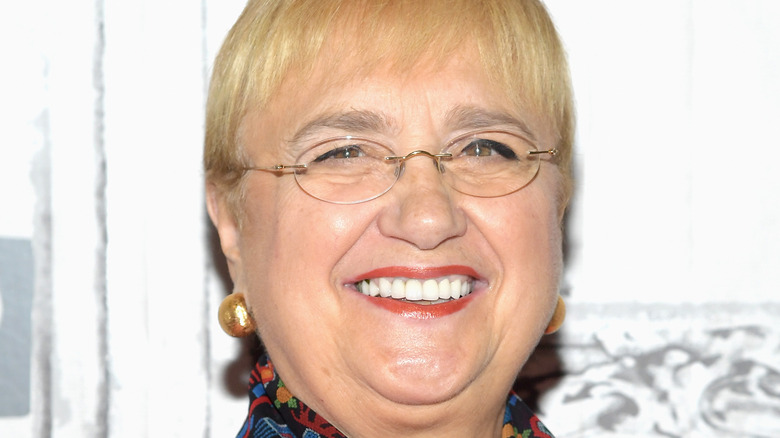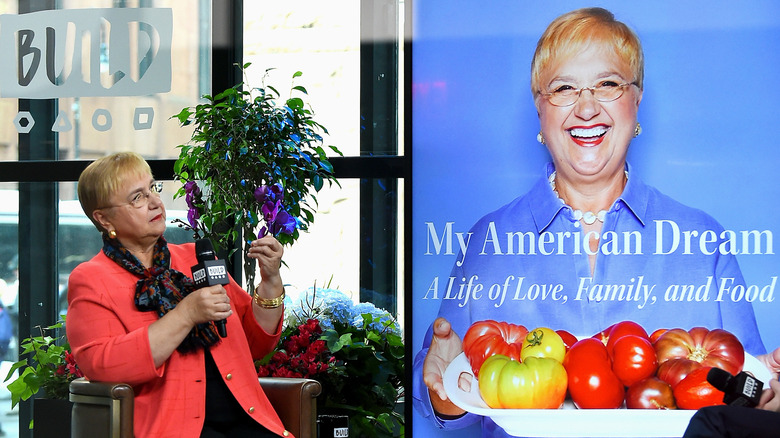The Real Reason Lidia Bastianich Was So Honest In Her Memoir
Chef and restaurateur Lidia Bastianich is the celebrated author of nearly a dozen cookbooks and can now add memoirist to her resume. Her book, titled "My American Dream: A Life of Love, Family, and Food," explores Bastianich's foray into the restaurant industry in her early life and the trajectory of her career as she opened numerous restaurants. According to the Washington Post, the memoir also takes a look at her family life, touching on why spending time with and collaborating with her daughter, Tanya, as well as other family members, is so important to her.
Bastianich writes that her affinity for food and kitchen life began amid her toddler years, when she would impersonate her grandmother making sauce by "filling old tin cans with rocks to emulate tomatoes and pouring them into [her] pretend pot to stir and simmer" (via Washington Post). While perhaps she was destined to end up a chef, life wasn't easy for Bastianich and her family during her childhood, some of which was spent in a refugee camp.
Lidia Bastianich wrote with honesty to connect with refugee children
When Bastianich was a child in the years following World War II, her family's hometown of Pola, Italy was reassigned to the territory controlled by then-communist Yugoslavia (via CTV News). In time, Bastianich and her family were able to escape and went to live at San Sabba, a refugee camp in Italy before moving to the United States. Bastianich recalls her time at the camp, writing about the conditions and how she did not feel safe. "Guards watched everyone at the camp 24-hours a day. I no longer had a home, a bed, a place to call my own; I felt vulnerable, and the only security I found was when we were huddled together as a family," she wrote, as reported by the Washington Post
During an interview with CTV News, Bastianich says she was so honest about her refugee experience in her memoir not to be political regarding the struggles of families in modern refugee camps, but simply to share her similar story, knowing she can relate to the experiences children in the camps are currently facing. "When I see those children on the screen in those camps ... I know in their hearts there's fright, I know in their hearts there's doubt, I know in their hearts they're waiting—waiting for a home, waiting for a place to go," she shared.

